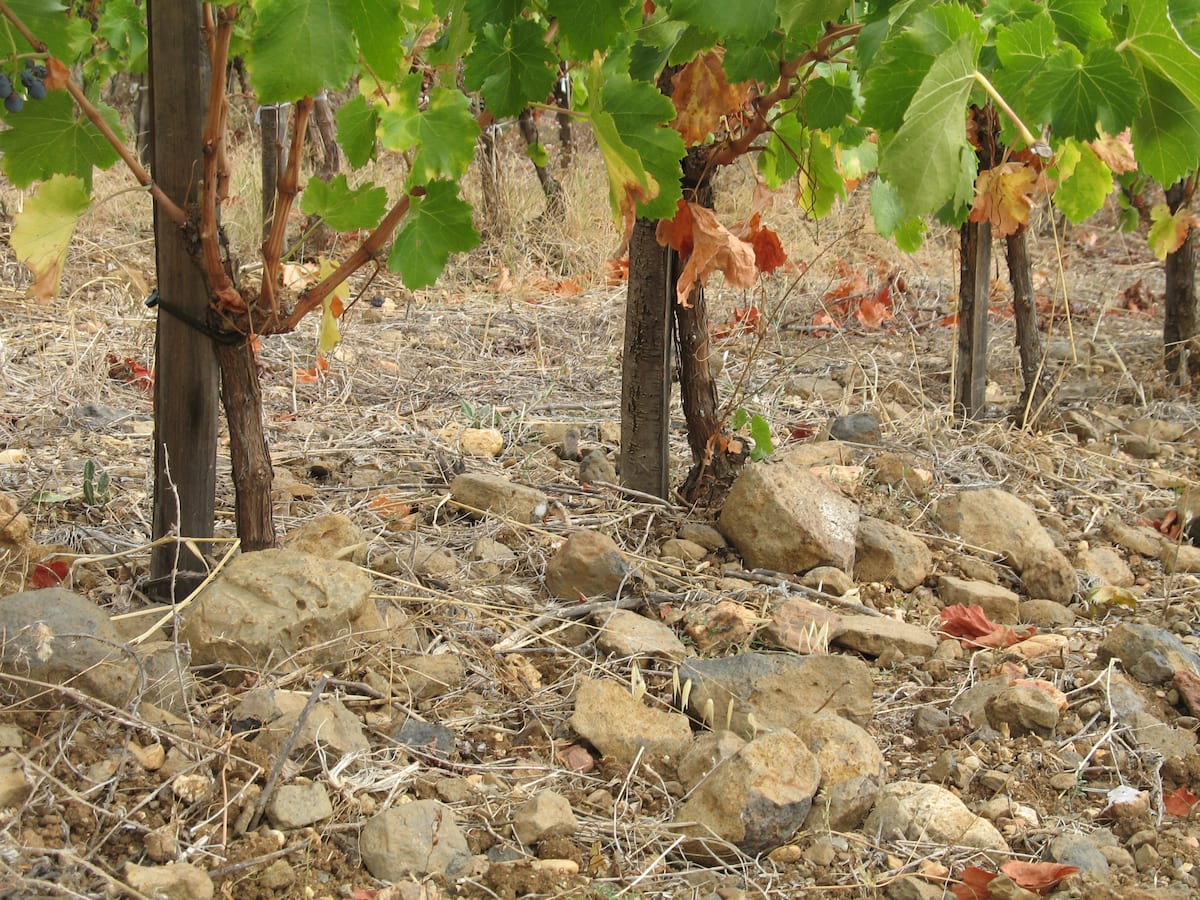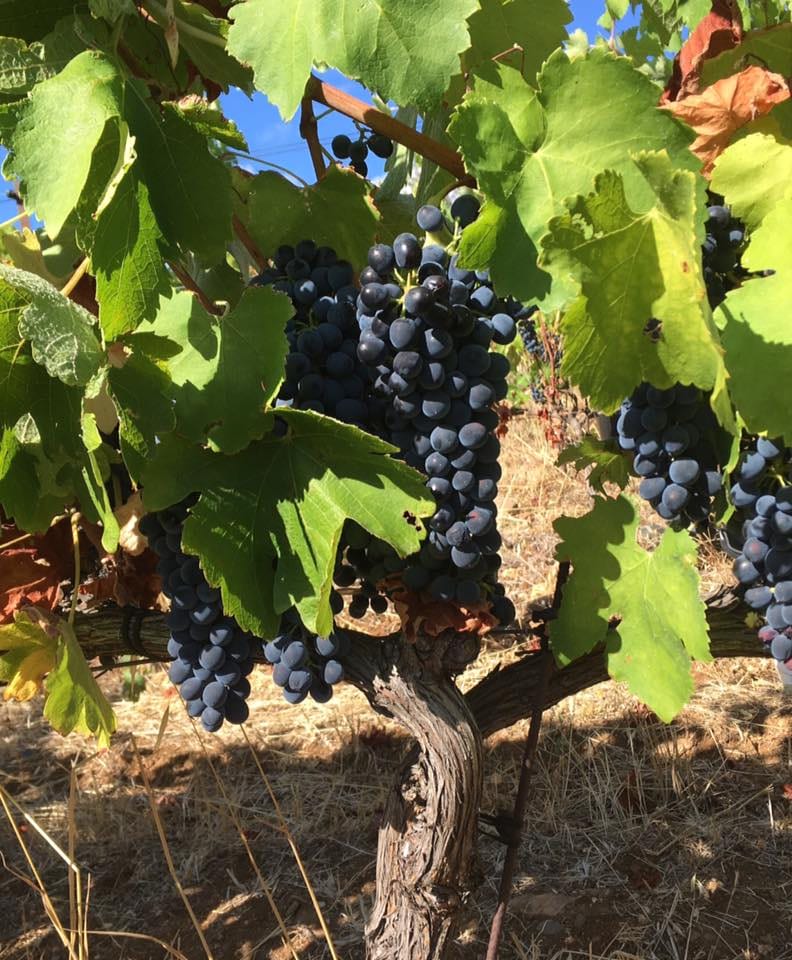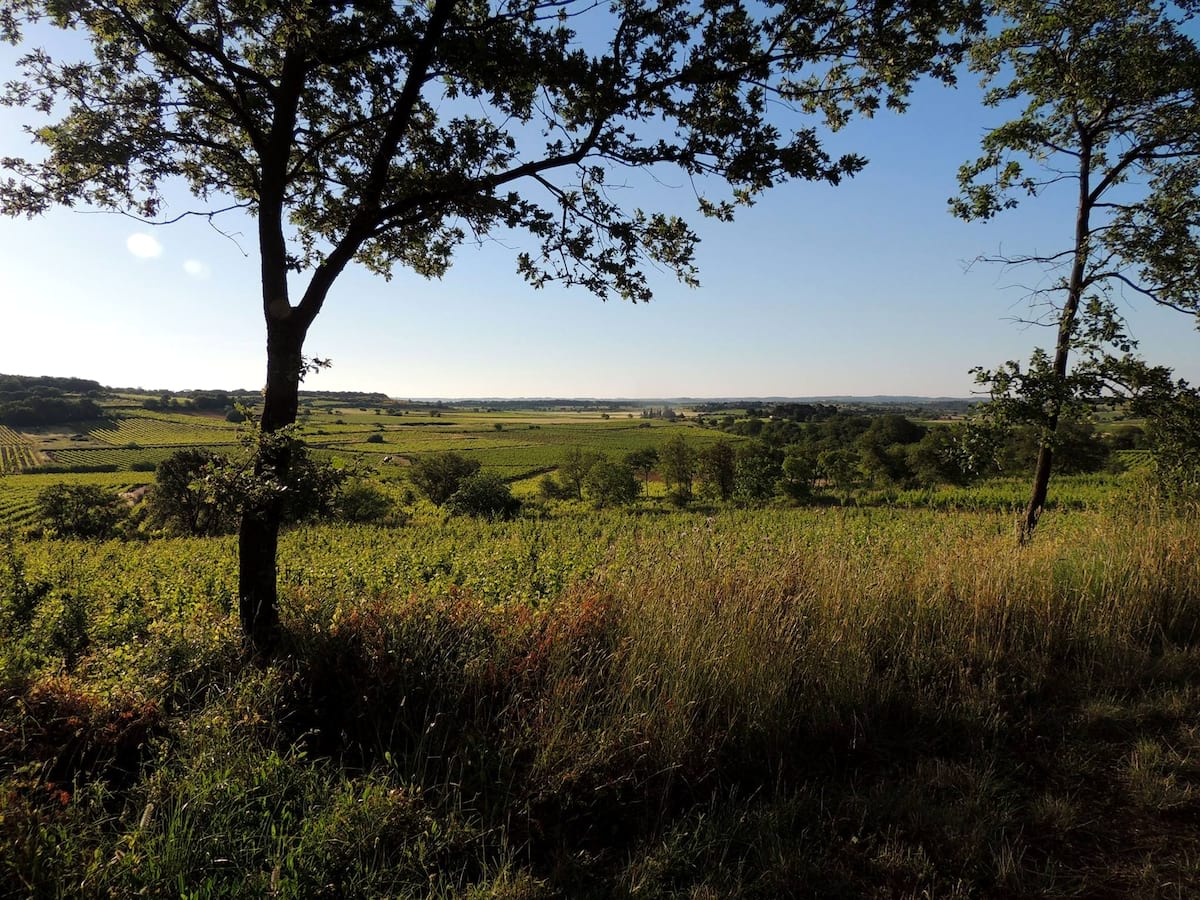The Domain
Discover our world

Soil & Climate
Typicity of the Pézenas terroir
We are often asked the question: Why did you choose Caux and this particular vineyard?
The answer is: the terroir. The soil contains large quantities of volcanic basalt, which is rare in the Languedoc.
In Caux, we have 4.7 hectares of red grape vines (Carignan noir, Syrah, Cinsault and Grenache noir) on the slopes at an altitude of 120 metres, facing east.
The soil consists of Villefranchian gravel, silt and basalt. The large quantity of basalt - which varies in size from gravel to large stones - brings freshness and a good balance of acidity to the wines. The vineyard is surrounded by trees and vegetation which maintains a well-balanced and healthy ecosystem.
On limestone soil, we also have a small plot of old white carignan. This soil brings freshness and an interesting minerality to our white wines.
3 km from Pézenas, in Saint-Jean-de-Bébian, we also own a small vineyard of 1.4 hectares on a completely different soil, where we grow old carignan and cinsault, as well as vermentino, grey grenache and white carignan. It is made up of rolled pebbles from the Villafranchian era, which can also be found in Châteauneuf du Pape in the Rhone valley.
The Climate
The climate of the Languedoc is perfect for producing organic wines of excellent quality.
Winters are cold, summers long and dry. Rain is often followed by a strong northwest wind that dries the plants and reduces the problems of fungal diseases such as powdery mildew and mildew.
Caux is situated between the mountains of the Haut Languedoc and the Mediterranean Sea and benefits from the refreshing night breezes which give the grapes perfect conditions for well-balanced and expressive wines.

Harvest
A small vineyard has the significant advantage of being able to wait for the optimal maturity of each parcel before harvesting. The bunches are picked by hand and put into small containers so that they arrive at the cellar perfectly intact.
Vinification is carried out in the simplest and most natural way possible.
For our red wines, each grape variety is vinified separately in small vats of 10 to 30 hectolitres, we could almost talk about micro-vinification. When we consider that the fermentation is finished, and that we have reached the right level of tannin extraction, the draining begins. The remaining marcs are delicately pressed in our press. The syrah is put into oak barrels and the carignan into concrete vats.
For our white and rosé, the whole bunches are pressed immediately and the must is cooled to clarify it. Fermentation takes place at a controlled temperature to preserve the full range of aromas and flavours.
Who are we?
Deborah and Peter Core, artisan winemakers since 2006.
We met in London in the 1990s.
Deborah, born in Kent, was a lawyer and Peter, born in Manchester, was a financial director.
We left London and England in September 2002 with the dream of one day having a small vineyard in the Languedoc.
Before moving to France, we spent 18 months in New Zealand where we worked with winemakers and obtained our diploma in viticulture and winemaking at the Tairawhiti Polytechnic Institute in Gisborne on the North Island.
As soon as we returned to Europe, we looked for a vineyard in the Languedoc region that would express all the typicity of its terroir from which we could produce great wines.
After a search of almost a year, we fell in love with a vineyard located in Caux, in the Pezénas appellation. A marvellous basaltic terroir on the hillsides with a plunging view over the Régagnade valley in Caux.
At the same time, we found a winemaker's house in Caux.
In 2006, we harvested and created our first vintage of Mas Gabriel.

Environment
How we cultivate our vines and protect the environment
We have always wished to cultivate our vineyard organically to protect the environment and offer a healthy wine to our customers. We are convinced that vines cultivated on the principles of organic farming produce fine wines which express their terroir.
Our vineyard is located on the highest part of the slopes of the valley; it is surrounded by trees of different species so we let the ecosystem regulate the insects that could present a danger to the vines.
The entire vineyard is classified as Organic which means that we do not use any herbicides, pesticides or systemic treatments for fungal diseases, nor even chemical fertilizers. Wild plants grow during the winter, then they are ploughed, mowed or grazed by sheep. When we plant new vines the weeding is done by hand !
And Biodynamics...?
We are convinced of the benefits of organic farming and apply certain principles of Biodynamics.
We consider the soil as a living organism, it is fertilized with decomposed cow manure in the autumn, the vines are treated with herbal decoctions.
Certain essential stages of our work are planned according to the lunar calendar, such as the planting of new grape varieties, the days of harvest and bottling.